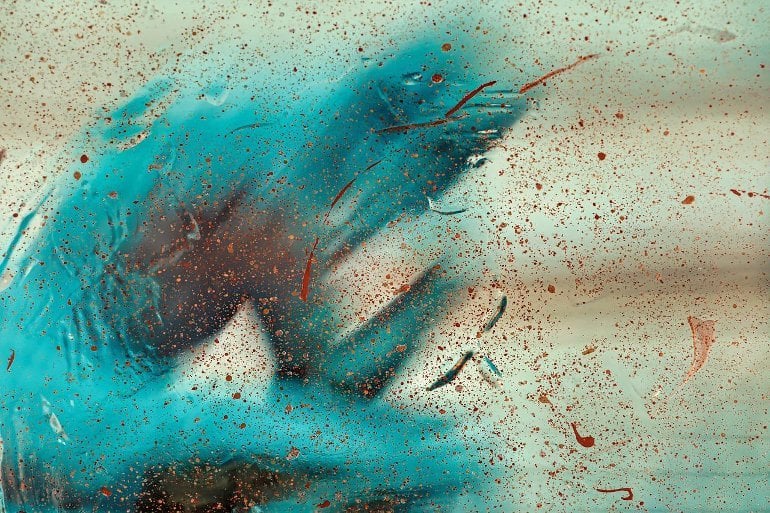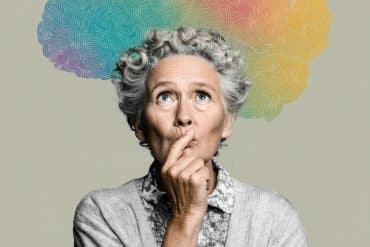Summary: A new study reports two doses of the psychedelic compound psilocybin reduced heavy alcohol consumption by 83% when combined with therapy for those with alcohol use disorder.
Source: NYU Langone
Two doses of psilocybin, a compound found in psychedelic mushrooms, reduces heavy drinking by 83% on average among heavy drinkers when combined with psychotherapy, a new study shows.
Led by researchers at NYU Grossman School of Medicine, the investigation involved 93 men and women with alcohol dependence.
They were randomly assigned to receive either two doses of psilocybin or an antihistamine placebo. Neither the researchers nor the study participants knew which medication they received.
Within an eight-month period from the start of their treatment, those who were given psilocybin reduced heavy drinking by 83% relative to their drinking before the study began. Meanwhile, those who had received antihistamine reduced their drinking by 51%.
Among the other key findings, the study showed that eight months after their first dose, almost half (48%) of those who received psilocybin stopped drinking altogether compared with 24% of the placebo group.
“Our findings strongly suggest that psilocybin therapy is a promising means of treating alcohol use disorder, a complex disease that has proven notoriously difficult to manage,” says study senior author and psychiatrist Michael Bogenschutz, MD, director of the NYU Langone Center for Psychedelic Medicine.
The U.S. Centers for Disease Control and Prevention reports that excessive alcohol use kills roughly 95,000 Americans every year, often due to binge drinking or liver disease. It is also linked to enormous economic and workplace losses, injury accidents, and impaired learning, memory, and mental health, says Bogenschutz, also a professor in the Department of Psychiatry at NYU Langone Health.
Current methods to prevent excessive alcohol use and dependency include psychological counseling, supervised detoxification programs, and certain drug regimens that dampen cravings.
According to study investigators, previous research had already identified psilocybin treatment as an effective means of alleviating anxiety and depression in people with the most severe forms of cancer. And earlier research by Bogenschutz and others suggested that psilocybin could serve as a potential therapy for alcohol use disorder and other addictions.
The new study, publishing Aug. 24 in the journal JAMA Psychiatry, is the first placebo-controlled trial to explore psilocybin as a treatment for excessive alcohol consumption, according to the study authors.
For the investigation, the research team recruited men and women who were diagnosed with alcohol dependence based on standard definitions and consumed on average seven drinks on days when they drank. Forty-eight patients received at least one dose and up to three doses of psilocybin, and 45 patients received the antihistamine placebo.
All received up to 12 psychotherapy sessions. These took place both before and after the drug treatments. Afterwards, the participants were asked to report the percentage of heavy drinking days they experienced during weeks 5 to 36 of the study.
They also provided hair and fingernail samples to confirm that they had not been drinking. All participants were then offered a third session of psilocybin to ensure that those who previously received a placebo had the chance to be treated with the psychedelic drug.

“As research into psychedelic treatment grows, we find more possible applications for mental health conditions,” says Bogenschutz. “Beyond alcohol use disorder, this approach may prove useful in treating other addictions such as cigarette smoking and abuse of cocaine and opioids.”
Bogenschutz says the research team next plans to conduct a larger, multicenter trial under an FDA IND sponsored by B.More Inc. He cautions that more work needs to be done to document psilocybin’s effects and to clarify appropriate dosing before the drug is ready for widespread clinical use. He notes that researchers have started such trials.
Psilocybin is a naturally occurring compound derived from fungi with mind-altering qualities similar to those of LSD and mescaline. Most study participants experience profound alterations in perception, emotions, and sense of self, often including experiences which are felt to be of great personal and spiritual significance.
Because the drug raises blood pressure and heart rate and can cause incapacitating and sometimes overwhelming psychological effects, researchers caution that it should only be used in carefully controlled settings and in conjunction with psychological evaluation and preparation.
About this psychopharmacology and AUD research news
Author: Press Office
Source: NYU Langone
Contact: Press Office – NYU Langone
Image: The image is in the public domain
Original Research: Closed access.
“Percentage of Heavy Drinking Days Following Psilocybin-Assisted Psychotherapy vs Placebo in the Treatment of Adult Patients With Alcohol Use Disorder” by Michael Bogenschutz et al. JAMA Psychiatry
Abstract
Percentage of Heavy Drinking Days Following Psilocybin-Assisted Psychotherapy vs Placebo in the Treatment of Adult Patients With Alcohol Use Disorder
Importance
Although classic psychedelic medications have shown promise in the treatment of alcohol use disorder (AUD), the efficacy of psilocybin remains unknown.
Objective
To evaluate whether 2 administrations of high-dose psilocybin improve the percentage of heavy drinking days in patients with AUD undergoing psychotherapy relative to outcomes observed with active placebo medication and psychotherapy.
Design, Setting, and Participants
In this double-blind randomized clinical trial, participants were offered 12 weeks of manualized psychotherapy and were randomly assigned to receive psilocybin vs diphenhydramine during 2 day-long medication sessions at weeks 4 and 8. Outcomes were assessed over the 32-week double-blind period following the first dose of study medication. The study was conducted at 2 academic centers in the US. Participants were recruited from the community between March 12, 2014, and March 19, 2020. Adults aged 25 to 65 years with a DSM-IV diagnosis of alcohol dependence and at least 4 heavy drinking days during the 30 days prior to screening were included. Exclusion criteria included major psychiatric and drug use disorders, hallucinogen use, medical conditions that contraindicated the study medications, use of exclusionary medications, and current treatment for AUD.
Interventions
Study medications were psilocybin, 25 mg/70 kg, vs diphenhydramine, 50 mg (first session), and psilocybin, 25-40 mg/70 kg, vs diphenhydramine, 50-100 mg (second session). Psychotherapy included motivational enhancement therapy and cognitive behavioral therapy.
Main Outcomes and Measures
The primary outcome was percentage of heavy drinking days, assessed using a timeline followback interview, contrasted between groups over the 32-week period following the first administration of study medication using multivariate repeated-measures analysis of variance.
Results
A total of 95 participants (mean [SD] age, 46 [12] years; 42 [44.2%] female) were randomized (49 to psilocybin and 46 to diphenhydramine). One participant (1.1%) was American Indian/Alaska Native, 5 (5.3%) were Black, 16 (16.8%) were Hispanic, and 75 (78.9%) were non-Hispanic White. Of the 95 randomized participants, 93 received at least 1 dose of study medication and were included in the primary outcome analysis. Percentage of heavy drinking days during the 32-week double-blind period was 9.7% for the psilocybin group and 23.6% for the diphenhydramine group, a mean difference of 13.9%; (95% CI, 3.0–24.7; F1,86 = 6.43; P = .01). Mean daily alcohol consumption (number of standard drinks per day) was also lower in the psilocybin group. There were no serious adverse events among participants who received psilocybin.
Conclusions and Relevance
Psilocybin administered in combination with psychotherapy produced robust decreases in percentage of heavy drinking days over and above those produced by active placebo and psychotherapy. These results provide support for further study of psilocybin-assisted treatment for AUD.
Trial Registration
ClinicalTrials.gov Identifier: NCT02061293






